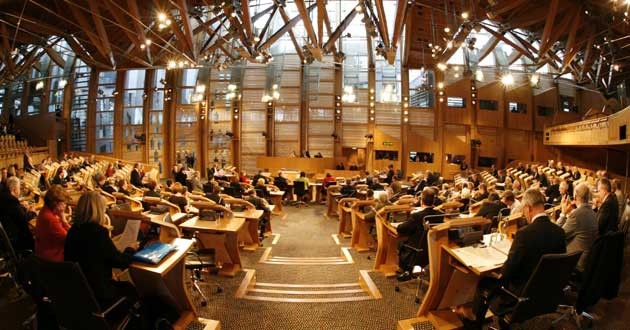Thank god it’s Thursday! Or is that not the saying? If I say it enough maybe I can speak it into existence. It worked for Scotland.
If the past two years has taught us anything; it’s that we’re adaptable. We’ve learned to spend many hours in front of our webcams staring at our colleagues (and secretly at ourselves.)
The pandemic granted many of us work flexibility — we figured out that taking a longer break has no detrimental effect on our work. Nor does a trip to the local dry-cleaners, or a midday grocery shop. So perhaps we can compile those extra hours and just cut out an entire day? Because are we really any less productive or efficient? When we get back to ‘regular’ life people are going to want more freedom, not less.

The four-day workweek
The concept of a shorter workweek probably isn’t new to you. We’ve all imagined how much better life would be if we spent less of it working. But the five-day workweek is so ingrained in our culture it’s hard to imagine a life without it.
The concept dates back to 1926, where it was first introduced by Henry Ford, who granted Ford Motor Company employees more time for family life and recreation. Part of the idea was also to give the men more time to increase their spending — on clothes, food, and you guessed it, cars.
We’re a hundred years further along: yet only recently have we started to dabble with shorter weeks. Some companies experimented with shorter days, but the same number of hours— although working 10 hours a day is simply not satisfying.
Fortunately for us, some countries have started to build the foundations for a brighter future. Iceland did two extensive trials, between 2015 and 2019, looking at the effectiveness of a four day workweek. That means moving from 40 to 32 hours, no pay cuts. The trials proved successful and greater work-life balance was created. Not only was the quality of work upheld — in some cases it even improved.
Iceland is not the only country to explore new ways of working. Microsoft Japan did a shorter study that showed promising results. Workers experienced less fatigue and had more motivation throughout the week which led to a 40% boost in productivity.
Scotland’s ruling party, the SNP, promised to reduce hours by 20% to the appeal of 80% of their poll respondents. Several Scottish companies have already adopted this system with success. Spain and New Zealand have also started trials implementing the four day workweek. Spain being the first country to do a nationwide trial; with around 200 companies taking part. So when’s it our turn?

Burnout epidemic
Problems plague work culture. Overworking is glamourised as a marker of success. Across the globe people spend an average of 9.2 unpaid hours working overtime a week — an increase from previous years. People boast about their dedication to show off their drive and ambition.
But with overworking provoking a burnout epidemic — perhaps we should really re-evaluate our romanticism. Not only does doing overtime require sacrifices in other areas of our lives, Stanford even showed us working more led to significantly less productivity.
The rise of chronic workplace stress has placed us in a state of continual emotional and mental exhaustion. In 2019, burnout was officially recognised by the World Health Organization as an “occupational phenomenon”. Burnout has also been linked in several studies to depression and suicidal ideation. A reduction in work hours would pave the way for better mental wellbeing.
Looks like the pandemic had a silver lining after all! We’ve started to better examine what we truly care about. Because no-one’s going to remember the KPIs when we keel over.

Humans vs. Robots
Reducing the amount of days worked might be necessary not only for our mental health, but for AI takeover — the robots are coming for our jobs. Some industries saw a huge increase in labour shortage during the pandemic, which made AI a valuable addition. One company, Covariant, who develop software to control robots, saw rising demand for AI in several industries; everything from pharmaceuticals, to groceries, to fashion. If we manage to establish a system where we work less, we’ll have laid the groundwork for AI’s widespread introduction; instead of scrambling for a solution for unemployment.
A privileged position
The four day workweek sounds like a luxury. I can’t help but wonder if only those privileged with certain jobs would benefit from less hours. There are many industries which cannot achieve the same work in four days instead of five. Take hospitality for example. A housekeeper in a hotel cannot cram five days into four — people check-out everyday.
Equal pay for four days would mean the business owner would need to hire an extra person to cover the fifth day, which would ultimately be more costly. Many people working these types of jobs come from less wealthy or migrant backgrounds. Would we only be rewarding those in an already privileged position? Those who are educated and have a desk job?

Fast food chain, Shake Shack, trialled a shorter week; but just for managers. Not just out of generosity, but also necessity. Shake Shack was opening more locations and hoped to attract more candidates; with the offer of less hours with equal pay. If we can make operations in industries like hospitality more efficient; we won’t need to hire more manpower to cover that fifth day. Hopefully with automation brought on by AI we can offer the same opportunities to more than just managers.
Time for change
We aren’t lazy for wanting a shorter work week. The combination of less stress, more sleep, more social interaction, and greater productivity are a wonderful bundle of opportunity. It will take time for companies to get on board with this new way of working. Hopefully, with several countries currently trialing this method, we will see more support for the change globally. So buy your festival tickets now — three-day weekends might be just around the corner.





